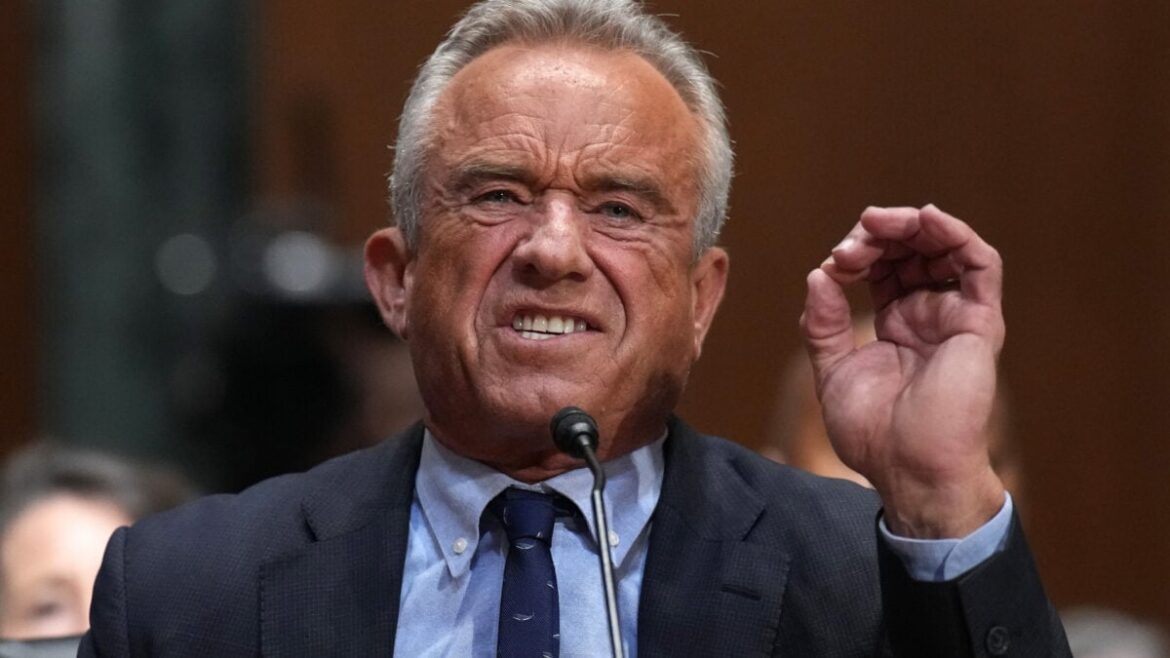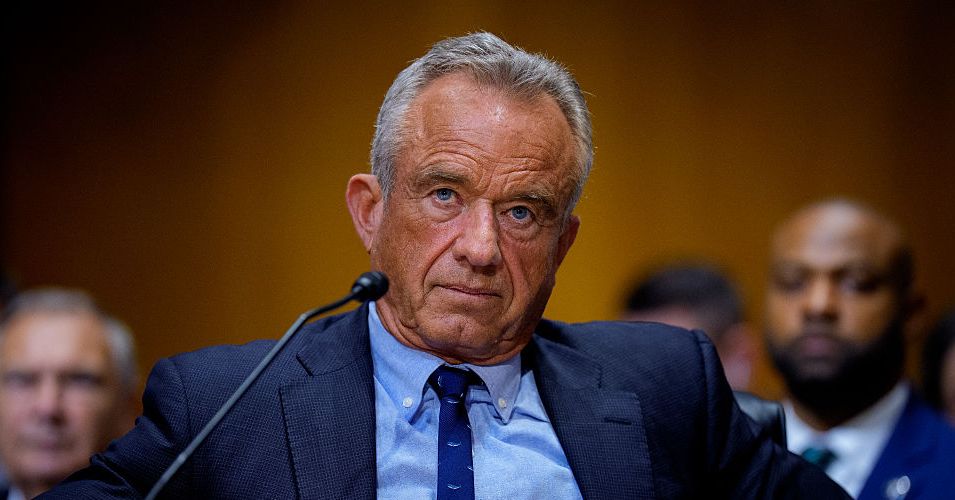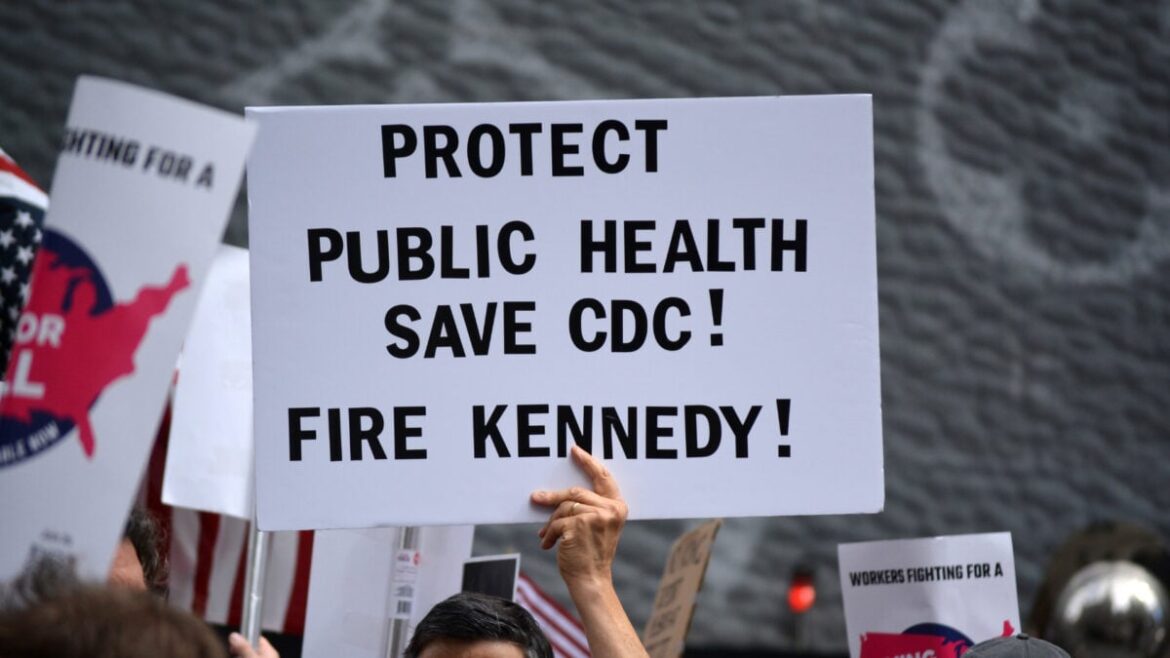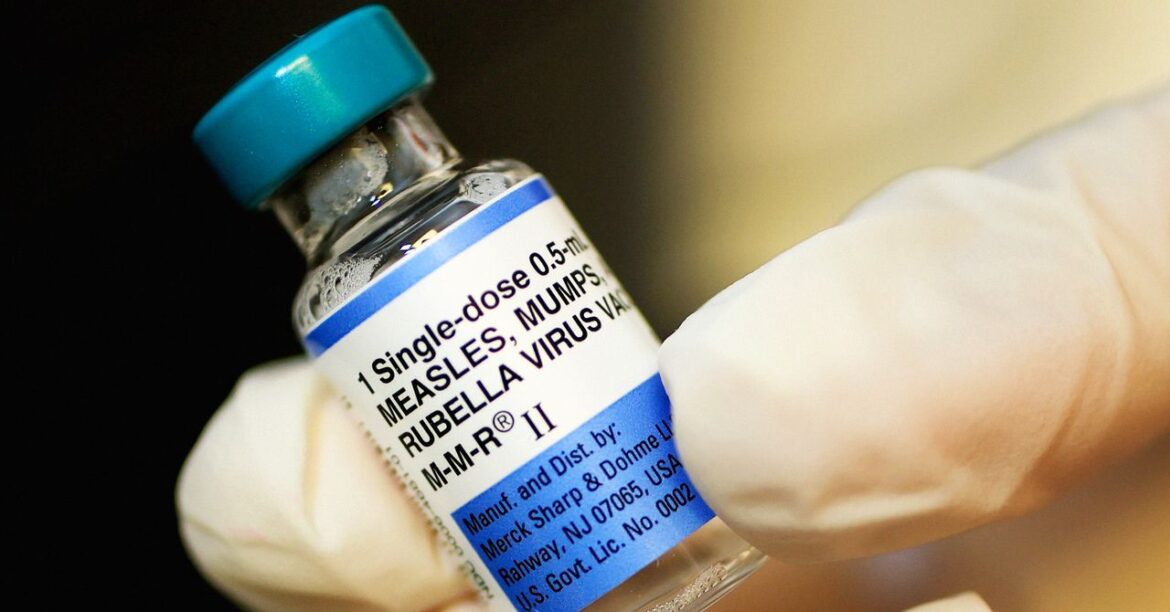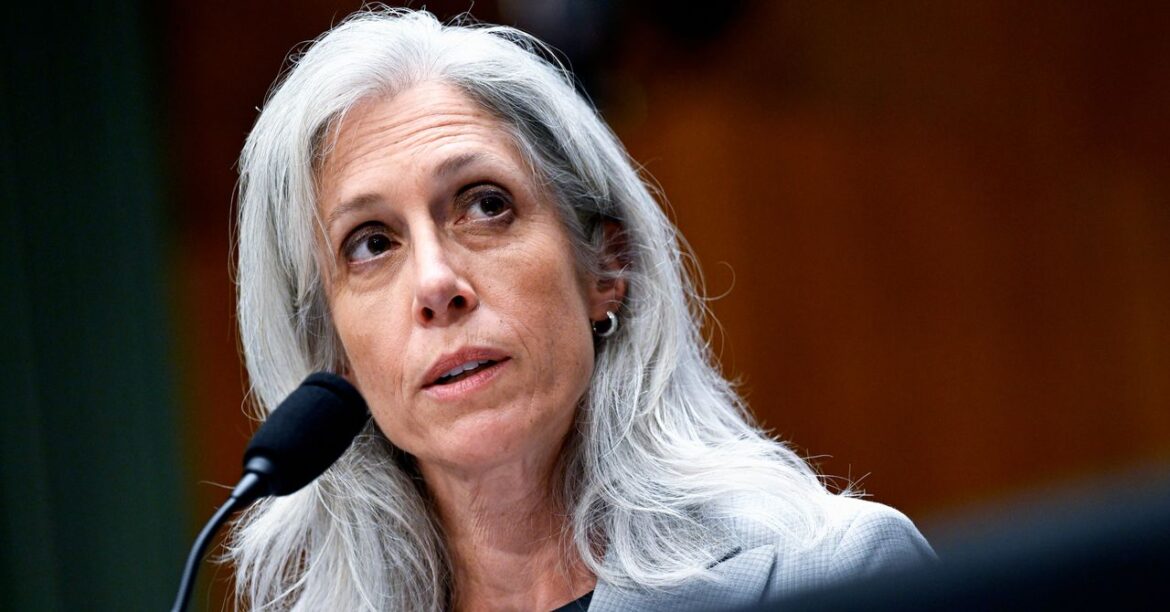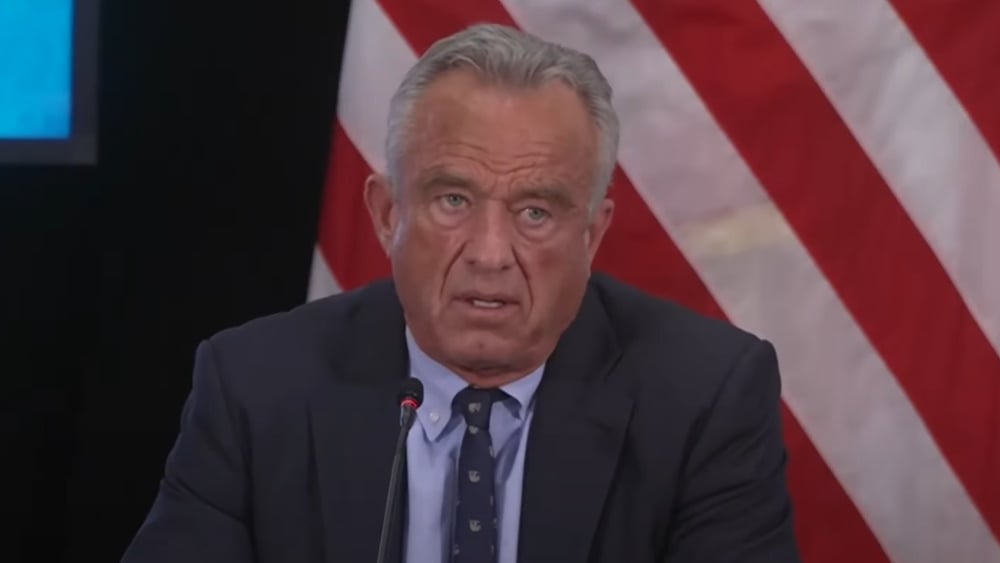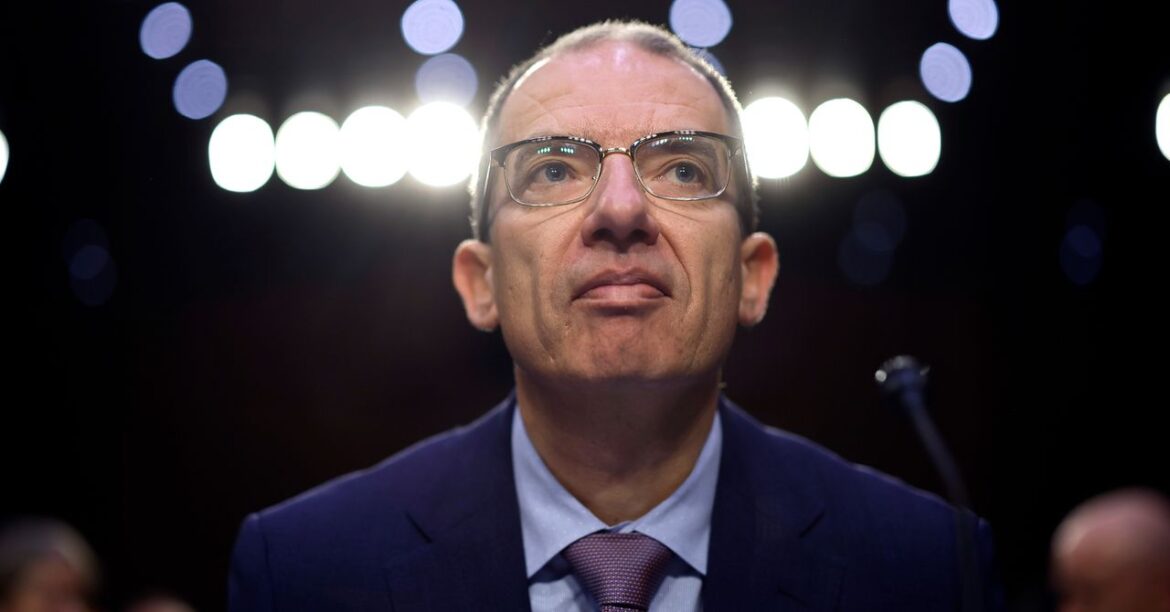President Donald Trump and U.S. Health and Human Services Secretary Robert F. Kennedy Jr. have officially found scapegoats to blame for rising rates of reported autism cases. In a report published today by HHS, the government has linked the use of acetaminophen (better known as Tylenol) during pregnancy to the neurodevelopmental condition.
Trump made the announcement at a news conference Tuesday afternoon, though the Wall Street Journal was the first to break the news on the expected findings earlier this month. The report singles out acetaminophen use and folate deficiency as possible autism causes and even suggests a specific drug used to improve the latter—leucovorin—as a potential autism treatment.
“Taking Tylenol is not good—I’ll say it, it’s not good,” Trump stated decidedly during the conference, though he went on to admit that there are no safer alternative over-the-counter painkillers for pregnant women to take. RFK Jr., meanwhile, stated that the FDA will be taking formal steps to add a safety label to acetaminophen products warning of its supposed autism risk, while HHS will be conducting a public health campaign to highlight the link.
Outside experts are dubious about the report, however, arguing that its findings are based on weak and mixed evidence, at best.
Why Tylenol is a red herring
Perhaps the biggest red flag surrounding this report is Trump and RFK Jr.’s grandiose language advertising it. Both men have crowed about finding the singular cause or answer to autism spectrum disorder.
“I’ve been waiting for this meeting for 20 years.” Trump said during the news conference. “And it’s not that everything is 100% understood or known. But I think we’ve made a lot of strides.”
Actual scientists, however, have long known that autism is generally triggered by a mix of genetic and environmental influences—influences that aren’t easily untangled.
The rate of reported autism cases in children has gone up over time. Many experts have argued that a greater awareness of autism symptoms and broader criteria in how autism is diagnosed are largely responsible for this increase. But Trump, RFK Jr., and others have refused to accept this conclusion, and have instead looked to point a finger at some external culprit in the environment.
Some environmental factors could be contributing slightly to more autism cases, such as people having children at an older age than before, but there are good reasons why Tylenol is unlikely to be a good villain for the Trump administration to blame.
“There’s nothing new here. They are reviewing existing literature, and they’re doing it badly,” David Mandell, an autism researcher and psychiatric epidemiologist at the University of Pennsylvania, told Gizmodo. Mandell is also an executive committee member of the Coalition of Autism Scientists, an organization that formed in response to RFK Jr.’s initial announcement earlier this April that he would supposedly uncover the causes of autism.
Some studies, including a review published last month, have suggested that prenatal exposure to acetaminophen could increase the risk of several neurodevelopmental disorders, such as autism and attention-deficit/hyperactivity disorder (ADHD). Importantly, though, many other studies haven’t, including studies that have tried to account for the weaknesses in the data being analyzed.
In a 2024 study, researchers in Sweden and the U.S. looked at the health outcomes of all children born in Sweden between 1995 and 2019. At first, they did find a small signal of potential autism risk in kids whose mothers reported using acetaminophen during pregnancy. This signal disappeared entirely when they only focused on comparing siblings to each other, however. Since siblings share many of these influences, this type of study can better isolate and cut down on potential noise in the data that could lead researchers down the wrong path.
Indeed, based on their results, the researchers concluded that the link between Tylenol and disorders like autism was probably a “noncausal association.”
Some research has also suggested that acetaminophen use among pregnant women in the U.S. and Canada has actually declined slightly since the early 2000s, Mandell notes, the opposite trend you’d expect to see if the drug was truly driving higher autism rates.
Notably, other countries have already tried to distance themselves from the U.S.’s new stance on Tylenol. The UK’s health regulators issued a statement today reassuring its residents that the use of acetaminophen (called paracetamol in Europe) during pregnancy is safe and that there is no evidence of it causing autism.
The tenuous case for leucovorin
The link between folate deficiency/leucovorin and autism in the new report is built on less shaky, but still tenuous, ground.
Folate is also known as vitamin B9, and expectant mothers need adequate levels of it to support their child’s health during pregnancy and prevent certain birth defects. That’s why women are recommended to regularly take folic acid (another form of vitamin B9 that breaks down into folate in the body) supplements while pregnant.
Research has suggested that some children with autism also tend to have trouble moving folate into their brains (usually due to an autoimmune issue), which then causes a condition called cerebral folate deficiency (CFD). Importantly, people can have CFD but still have normal folate levels in their blood. Leucovorin is a different form of vitamin B9 (folinic acid) that’s most commonly used to counteract the toxic effects of some chemotherapy treatments. But the drug can also bypass the typical method for folate delivery, meaning it can raise folate levels in the brain and treat CFD.
Based on this early research, some scientists have been excited about the potential of leucovorin to help children with both autism and CFD. Some clinical trials have yielded promising results, while some parents have claimed that leucovorin dramatically improved their children’s communication and developmental skills. All that said, the trials have been small to date, with the largest so far involving 80 children (a similar trial of 80 children is expected to be completed next year) and the smallest only having 19 children.
Leucovorin could absolutely turn out to be an effective treatment for the subset of children who seem to have both conditions, but Mandell is worried about the Trump administration rushing through the scientific process in hopes of securing good publicity. When I asked if the administration is putting the cart ahead of the horse with leucovorin, Mandell replied, “We don’t even know if there is a cart yet.”
Mandell also cautions that both researchers and the autism community have had their hopes raised—only to be dashed—by early, promising studies in the past. Over 20 years ago, he notes, much was made about the potential of secretin, a neurotransmitter that helps regulate digestion, to treat autism symptoms. Case reports and small trials appeared to show a positive effect from secretin, only for multiple larger trials to later find nothing of the sort.
This cautionary tale has not stopped Trump and Kennedy from quickly moving to promote and even approve leucovorin for autism via the FDA. The FDA is publishing a Federal Register notice outlining a label update for leucovorin, according to HHS, which will formally authorize a prescription version of the drug for treating autism.
“If folinic acid gets an FDA indication for autism, it would be the drug with the weakest evidence to support its FDA indication of any drug that I can think of,” Mandell said.
Mandell and others have also noted some groups close to Trump world could potentially profit handsomely if leucovorin becomes popularized as an autism treatment. Mehmet Oz, the current administrator of the Centers for Medicare & Medicaid Services, was previously an advisor to the supplement company iHerb, for instance, which has several listings for folinic acid supplements on its website. Oz himself pledged to resign from the company and divest his restricted stock units from iHerb upon becoming CMS chief.
The future of autism research
The government’s approach to autism and research is now taking shape. That said, under the Trump administration, the National Institutes of Health has actually cut funding this year from its existing autism-related efforts, either due to negligence or as part of a larger crusade to tear down anything in the government that even acknowledges racial and other disparities for being too “woke.”
Mandell and other experts worry that the administration’s new focus on acetaminophen and leucovorin will only lead to more wasted resources and fearmongering about an important intervention. Compared to aspirin and NSAIDs, Tylenol is considered a safer OTC pain and fever reliever for pregnant women, and it’s estimated more than half of women worldwide take the drug at least once during pregnancy.
Unfortunately, the scapegoating may not be over yet.
The HHS report notably doesn’t focus on vaccination, which Kennedy, other antivaccination proponents, and even Trump have long tried to blame for rising autism rates. Extensive scientific research over the years has and continues to find no such link between vaccines or their ingredients and autism. But HHS has reportedly hired well-known antivaxxer David Geier to conduct a new study reexamining this debunked connection.
During the news conference, Trump tried to relitigate the case for separating out the measles, mumps, and rubella combination vaccine (a common goal of the anti-vaccination movement), arguing that taking too many vaccines at once is dangerous to people’s health, a claim with little backing. RFK Jr. also made it clear during the conference that HHS will be investigating the purported link between vaccines and autism, somehow framing it as a matter of “believing all women”—referring to the mothers who believe vaccines cause autism.
Acetaminophen may be the first fake bogeyman that Trump and Kennedy will formally blame for autism, but it seems unlikely that it will be the last.

